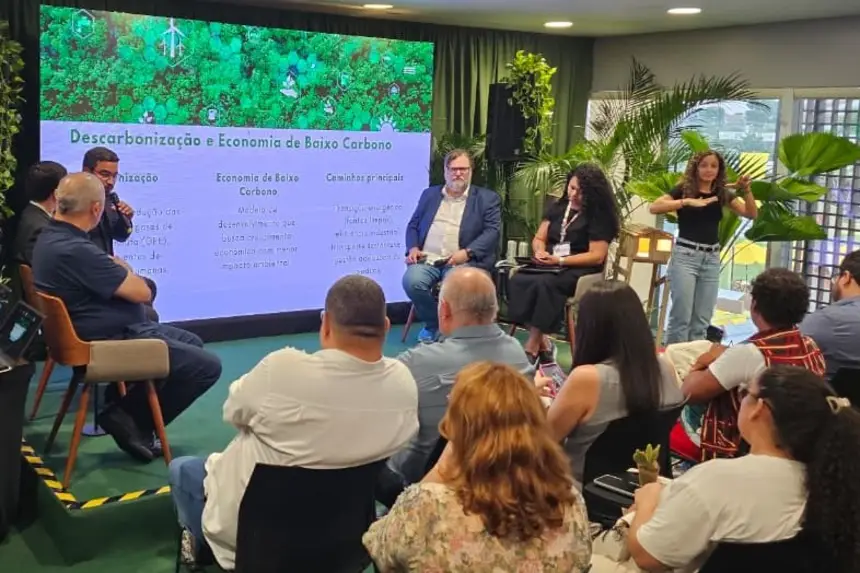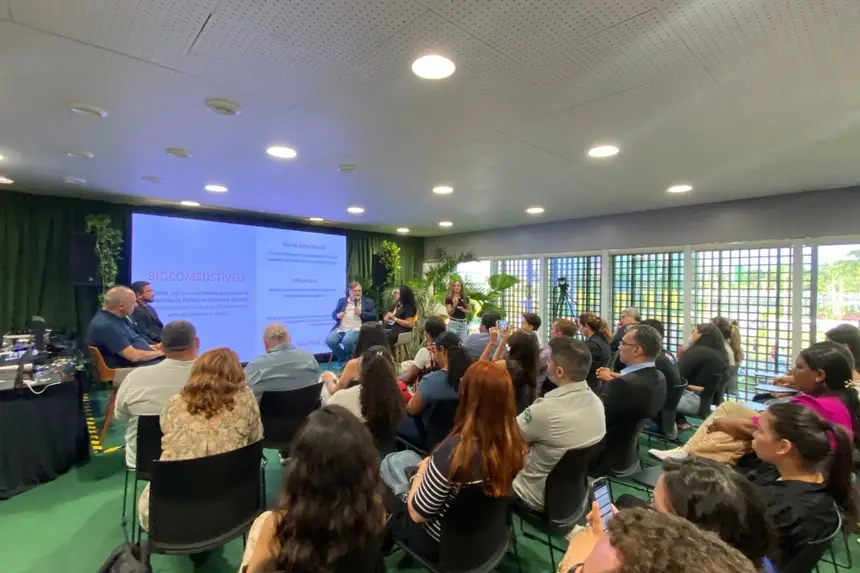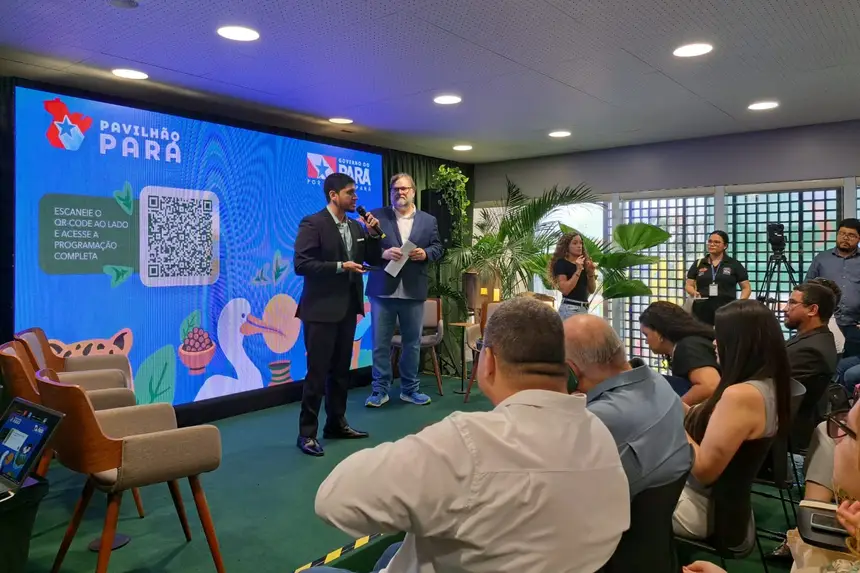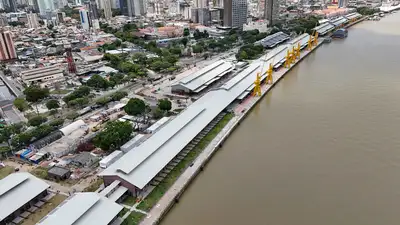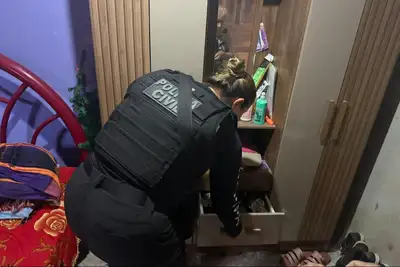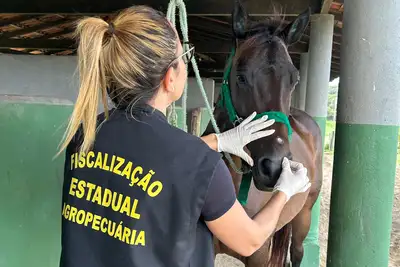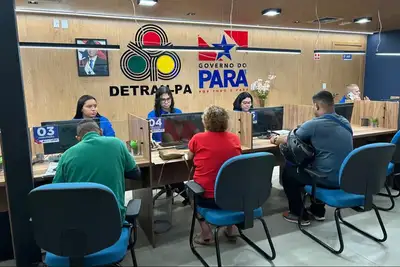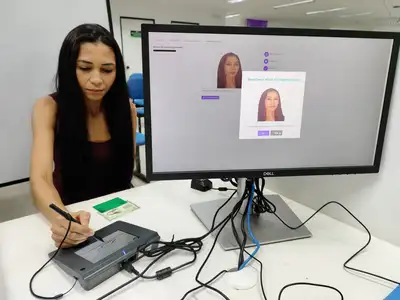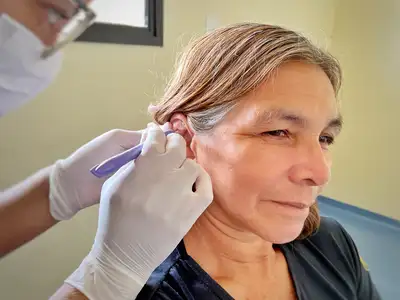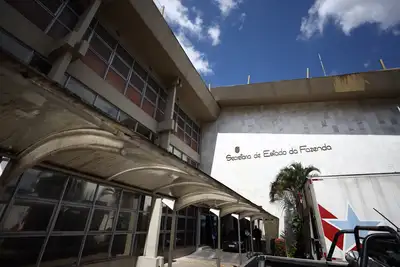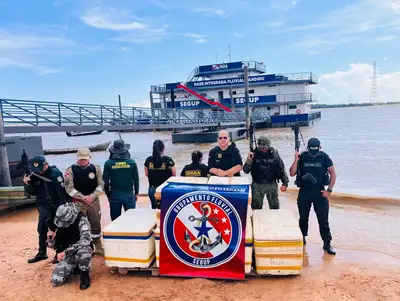Sedeme promotes debate on bioenergy in Pará: Biogas, Biomethane, and Biofuels
The projects aim to unite the public sector, industry, waste management, and international cooperation, contributing to the mitigation of climate change and the reduction of greenhouse gases.
The State Secretariat for Economic Development, Mining and Energy (Sedeme) held, this Thursday (13), in the Green Zone of COP30, in Belém, the panel "Bioenergy in Pará – Biogas, Biomethane and Biofuels in the Amazonian Energy Transition." The activity was part of the fourth day of the programming of the 30th Conference of the Parties to the United Nations Framework Convention on Climate Change (COP30), and brought together experts to discuss the strategic role of Pará in the Brazilian energy transition.
The debate addressed the expansion of biogas and biomethane from the utilization of urban solid waste, as well as the relevance of biofuels, such as biodiesel, in the Amazonian context. The initiative sought to promote synergies between the public sector, industry, waste management, and international cooperation, contributing to the mitigation of climate change and the reduction of greenhouse gas emissions.
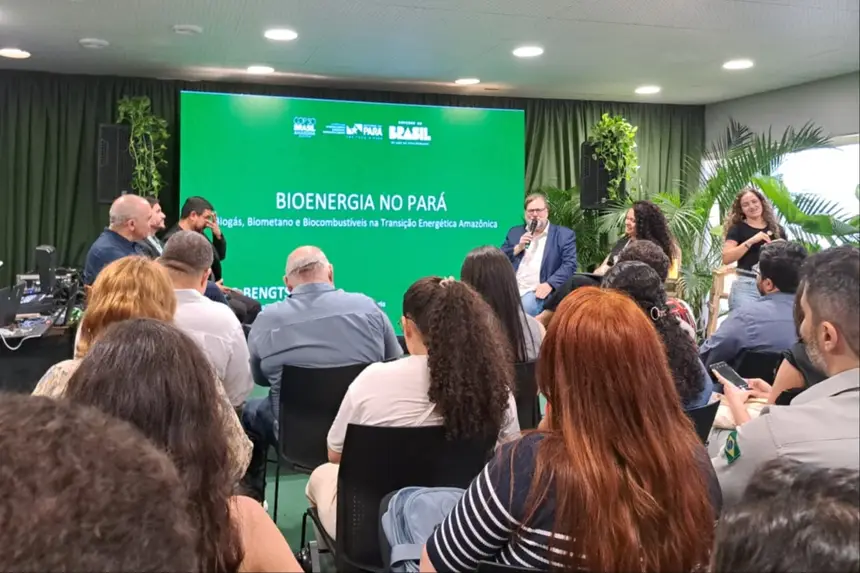
Among the panelists were the Secretary of State for Economic Development, Mining and Energy, Paulo Bengtson; the Institutional Relations Manager of Guamá Waste Treatment, Wagner Cardoso; the Project Manager of Business Sweden, Pricila Carmo, and the Director of Energy Transition and Institutional Relations of Be8 Energia, Camilo Adas. The activity was mediated by the Coordinator of Energy Resource Management of Sedeme, Gabriel Cardoso.
The Brazilian energy matrix — especially in the Amazon region — is undergoing a transformation process. In Pará, new opportunities are emerging for the expansion of bioenergy as a vector for sustainable development, with an emphasis on waste utilization, the promotion of a circular economy, and the replacement of fossil fuels with renewable sources.
Among the topics discussed were estimates of annual generation of approximately 166 million cubic meters (m³) of biogas and 125 million m³ of biomethane, strategies for the utilization of urban and agro-industrial solid waste, production of biofuels from local chains, such as palm oil, and strengthening the circular economy.
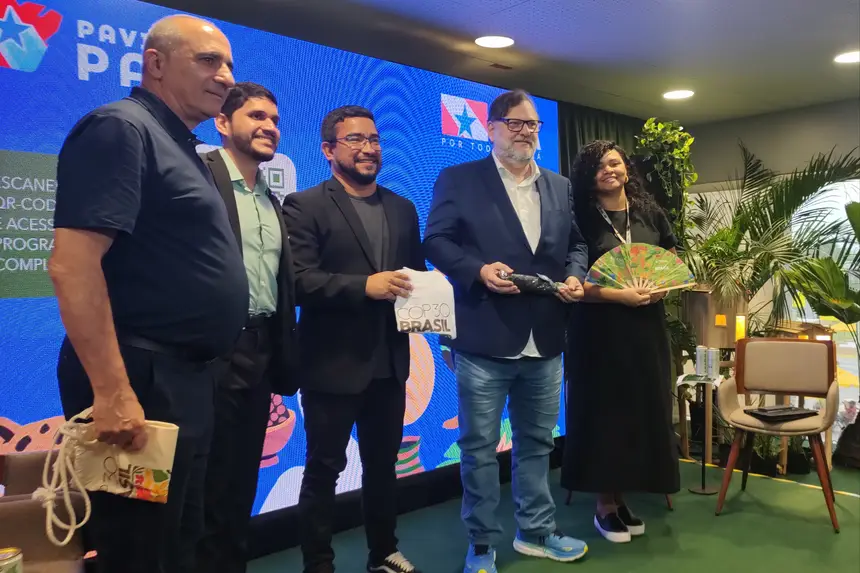
Planning - Secretary Paulo Bengtson opened the debate by presenting the vision of the state public policy, tax incentives, energy planning for Pará, and adaptive regulatory frameworks for the Amazon. He stated that the State stands out as one of the most diversified in energy matrix in Brazil, combining hydropower, solar, and biomass potential in a scenario of transition to a low-carbon economy. The Belo Monte and Tucuruí hydropower plants account for 97% of the state’s electricity generation, while solar energy is growing rapidly. Belém is already among the eight capitals that use this source the most in Brazil.
Paulo Bengtson reinforced that bioenergy plays a strategic role in Pará's energy policy. According to the secretary, "the incentive policy of Pará has been strengthening the biofuels sector by granting tax benefits to 26 biodiesel and ethanol producing companies. Palm oil, the flagship of Pará's biodiesel, supports a large part of national production, while corn and sugarcane are gaining ground in new ethanol projects in flex plants, expanding economic and energy opportunities in the region."
The head of Sedeme also highlighted Pará's potential in the generation of biogas and biomethane, low-carbon energies obtained from urban and agro-industrial solid waste. "Sedeme has been coordinating with national and international partners for future projects that drive the energy transition by attracting investments, such as in the expansion of biodiesel, ethanol, and the introduction of biomethane in the transport sector," he informed.
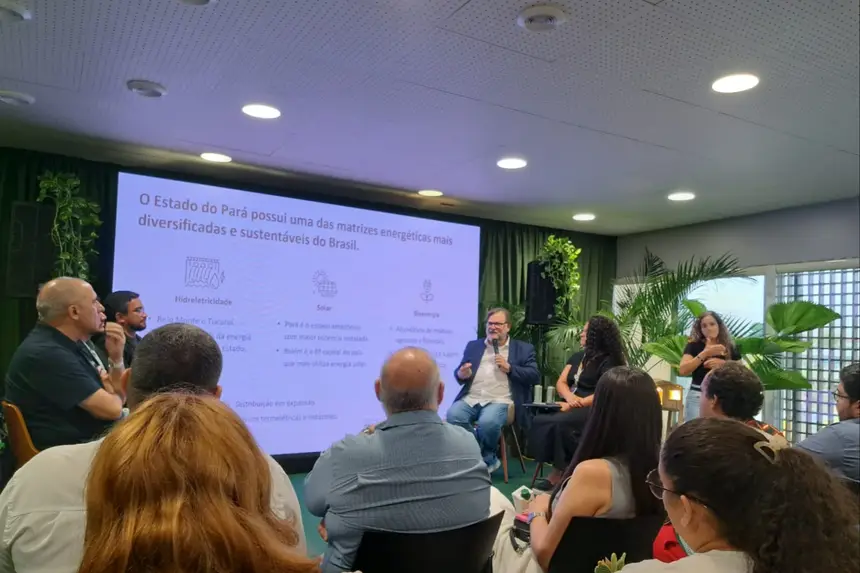
Waste Utilization - Wagner Cardoso addressed the relationship between urban and industrial waste and energy generation, showing how landfill utilization can feed the biogas and biomethane chain, generating socio-environmental benefits. He warned that the improper disposal of waste is one of the biggest challenges: "In the North Region, 62% of waste is discarded improperly, which corresponds to about 3 million tons. In addition, the country still has more than 2,500 landfills with improper disposal," he emphasized.
He also pointed out ways to change this scenario, such as the implementation of structured sanitary landfills, increasing collection coverage, and energy recovery from waste.
Pricila Carmo highlighted the importance of international cooperation, technological innovation, and business models that connect Pará to countries and international organizations as a way to attract investments, adapt technologies, and accelerate the energy transition.
Biodiesel - Camilo Adas, Director of Energy Transition at Be8 Energia, presented the role of the company, which has an industrial unit in Santo Antônio do Tauá, in northeastern Pará, 65 kilometers from Belém. The plant has the capacity to produce 90 million liters of biodiesel per year, using palm and soybean oils, as well as animal fats.
He discussed strategies for vehicle decarbonization through the use of biofuels and explained that Be8 Bivante replaces conventional diesel in a “one-to-one” ratio, without the need for modifications to the engines. At COP30, he showed the results of buses that already operate with the biofuel and recalled the “Sustainable Route Caravan COP30,” which traveled Brazil from Passo Fundo (RS) to Belém (PA), fueled with BeVan.
In closing, Camilo Adas reinforced that the energy transition is an irreversible path, and that solutions like Be8 represent technological innovation and a commitment to a sustainable future.
Paulo Bengtson concluded the debate by emphasizing Pará's strategic role in the national renewable energy agenda and in the global fight against climate change, consolidating the State as a showcase of Amazonian solutions with international reach.


